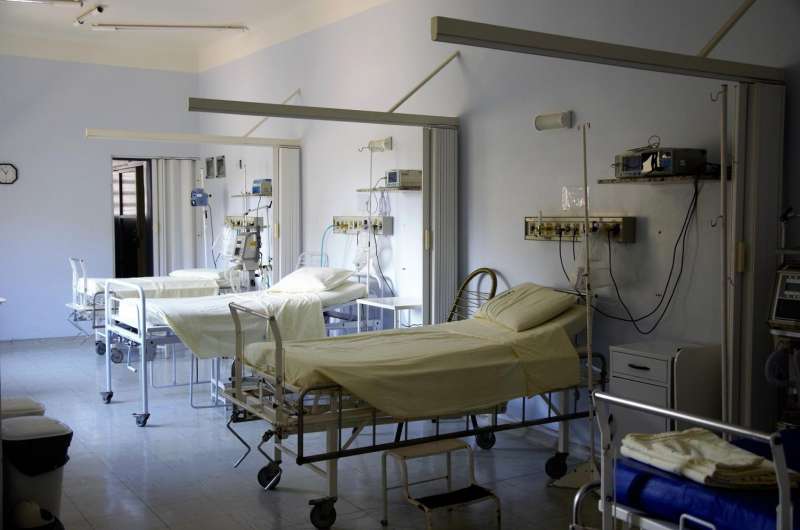Curbs on legal highs cut need for hospital care

Fewer people sought hospital treatment for the toxic effects of so-called legal highs following temporary restrictions, a study based at an Edinburgh hospital suggests.
The marked drop led to healthcare savings and suggests that the government restrictions—combined with local council measures—were successful in preventing drug harm, researchers say.
The research is the first to evaluate the impact on hospitals of public health crackdowns on this type of drug, which has since been outlawed.
To swiftly tackle a rise in the use of these novel psychoactive substances (NPS), the UK Government brought in two temporary class drug-orders—or TCDOs—in 2015. These banned import and supply of common types for 12 months.
NPS—synthetic chemical compounds that affect the brain and alter behaviour—were also targeted by trading standards curbs brought in by the City of Edinburgh Council in partnership with the police.
Researchers at the University of Edinburgh and NHS Lothian looked at anonymous health records documenting patients who came to hospital suffering harmful drug effects. The data spanned almost three years, covering time before and after TCDOs and trading standards restrictions were brought into force.
Complications from the toxic effects of NPS can include psychosis, seizures and death.
In the six months following the introduction of TCDOs, researchers identified a large and rapid fall in people presenting to hospital for harms from NPS.
Admissions relating to one particularly common drug type—ethylphenidate—almost completely disappeared in this time, researchers say.
There was an 80 per cent reduction in hospital admissions for all forms of NPS—including the drug known as spice—following trading standards actions later in 2015 that removed NPS from local shops in Edinburgh.
The restrictions were also associated with a reduction in the number of post-mortem examinations where NPS drugs were detected.
Over the same period there was a small increase in people seeking hospital treatment after taking classic stimulants such as MDMA and amphetamines. There was no such increase in admissions linked to use of opioids such as heroin, the study shows.
In 2016, NPS were banned by law under Psychoactive Substances Act (2016). The effect of this law on hospitalisations was hard to define, researchers say, as TCDOs and trading standards enforcement had already had such a marked effect.
Experts caution that their findings do not prove that the restrictions cause the change but maintain that this is the strongest evidence to date that such restraints can prevent harm.
Lead researcher, Michael Eddleston, Professor of Clinical Toxicology at the BHF Centre for Cardiovascular Science at the University of Edinburgh and consultant NHS toxicologist, said: "Our findings suggest that TCDOs, combined with local trading standards, were very successful in reducing NPS harm in Edinburgh.
"Widespread adoption of trading standards enforcement, together with focused legislation, seemed to turn the tide against these highly-damaging drugs. These restrictions may have offered health benefits and saved the NHS substantial funds each year."
More information: Janice Pettie et al, New drug controls and reduced hospital presentations due to novel psychoactive substances in Edinburgh, British Journal of Clinical Pharmacology (2018). DOI: 10.1111/bcp.13672

















